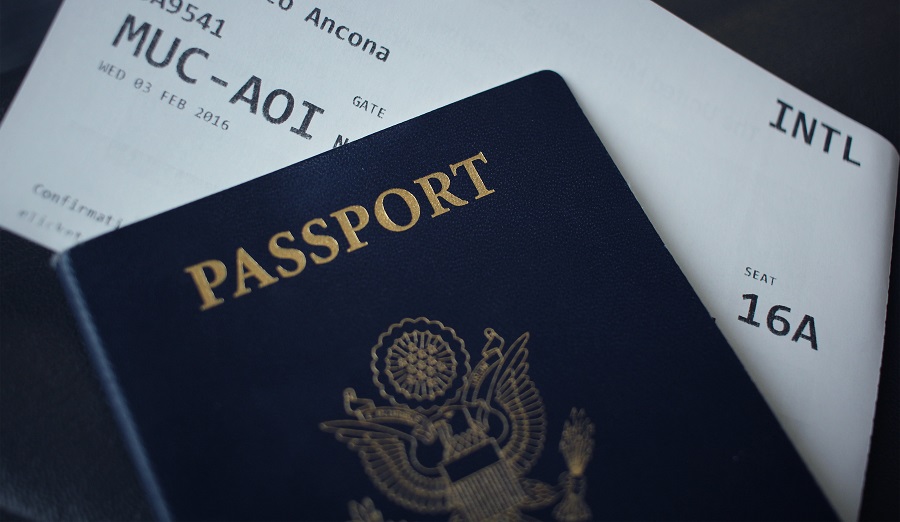Eligibility Requirements for Various Canadian Immigration Programs
How to Determine if You Qualify for Permanent Residency Under Certain Programs
Immigrating to Canada is not an easy process. There are many steps you’ll have to take just to successfully apply and get approved to immigrate to Canada. Overall, this process can take months, and sometimes even years. But, by knowing what options are available for obtaining permanent residency and whether or not you qualify for them, you can avoid frustrating pitfalls and delays and improve your chances of success when it comes to immigration. The information in this blog is summary in nature and for informational purposes only; please note that it does not constitute legal advice.
With that being said, let’s take a look at some of Canada’s immigration pathways that lead to permanent residency along with their individual eligibility requirements.
Eligibility Requirements for Various Immigration Programs
Family Sponsorship
One of Canada’s most commonly explored immigration pathways is family or spousal sponsorship.
This avenue enables newcomers to obtain permanent residency through an eligible spouse or family member living in Canada who acts as your sponsor.
To be eligible, the person seeking sponsorship must have a familial relationship to the sponsor by being a:
- Spouse
- Common-law or conjugal partner
- Dependent child
- Parent
- Grandparent
Only in very specific situations is it possible to sponsor relatives like a brother, sister, cousin, aunt, or uncle.
Keep in mind that your sponsor must be over the age of 18 and must either be a Canadian citizen, or hold Canadian permanent resident status
The sponsor must also currently reside in Canada, unless they have citizenship and are currently living abroad temporarily, but plan to return to Canada once the sponsored individual arrives.
A family member or spouse cannot sponsor you if they:
- Are in prison
- Have a removal order issued against them
- Are going through a bankruptcy
- Receive social assistance from the government (except for disability)
- Have been convicted of, or attempted/threatened to commit a violent and/or sexual offence that resulted in the bodily harm of a family member
- Failed to pay child support payments
- Have failed to pay back immigration loans, or have made late payments
- Previously sponsored another family member and failed to meet the terms
- Have already sponsored a former spouse or partner who has been a permanent resident for less than 3 years
- Were sponsored themselves and have been a permanent resident for less than 5 years
Other sponsorship obligations that are required from both the immigrant and the sponsor include:
- Financial Support. Your sponsor must have the ability to financially support you if you are unable to support yourself upon your arrival in Canada. The required annual income, along with the length of time that the sponsor is responsible for you financially depends on the number of individuals being sponsored and their financial situation.
- Police Certificate. Any newcomers that are over the age of 18 must submit a police certificate from both the country you have lived in for most of your life along with any country you resided in for 6 months or longer.
- Medical Exam. Immigration applicants must undergo a medical evaluation and submit the results at the time of application. Applicants from Europe, the Middle East, and Africa must also submit their biometrics.
- Pay Sponsorship Fees. When applying for family sponsorship, you must pay the appropriate sponsorship and processing fees. There is also an additional Right of Permanent Residence Fee for every sponsored relative who is not a dependent child. The Right of Permanent Residence Fee will be refunded to you if your application is withdrawn or refused.
Federal Skilled Worker Program
The Federal Skilled Worker Program is an economic immigration pathway that issues immigration offers to skilled workers based on their education, work experience, knowledge of English and/or French, among other factors.
In order to qualify for the Federal Skilled Worker Program, there are certain minimum requirements that you must meet, such as:
- Work Experience. You must have at least 12-months of continuous, full-time, work experience completed within the past 10 years, or an equal amount in part-time experience.
- Language Proficiency. You must prove your level of competency in either English or French by passing a language test.
- Education. You must have obtained a high school diploma, or the equivalent in your country of origin.
- Financial Stability. You must be able to prove that you have enough money to financially support yourself along with your family upon your arrival in Canada.
- Intention to Live in Certain Areas. You must intend to live in any province, except for Quebec, as Quebec has its own separate economic immigration program that you must apply to if you wish to work and reside there.
In terms of work experience, it’s also important to note that only experience with the following job types will be considered under the Federal Skilled Worker Program:
- Professional Job. A professional job is one that requires a high level of training, usually from a university. This includes doctors, dentists, and architects.
- Technical Job. This includes skilled trades such as plumbers, electricians, mechanics, chefs, etc. that require specialized training through a college diploma or apprenticeship.
- Managerial Job. This type of position does not typically require much education, and can include restaurant managers, mining managers, and shore captains.
If you are able to meet the minimum requirements outlined above, you can submit an application to Express Entry Portal.
When submitting your application, you will be evaluated and issued a number using a point system that takes into consideration your:
- Education
- Language Proficiency
- Age
- Work Experience
- Arranged Employment
- Adaptability
In order to receive an offer, you must score at least 67 out of 100 points.
You must also provide the following documents when submitting your application:
- Educational Credentials Assessment (ECA)
- Language Proficiency Test Results
- Identification Documents
Provincial Nominee Program
Each Canadian Province has its ow immigration streams targeting certain groups, such as:
- Students
- Businesspeople
- Skilled workers
- Semi-skilled workers
If you are looking to immigrate to Canada through the Provincial Nominee Program (PNP), you must be nominated by a particular province or territory.
In order to earn a nomination, you first need to apply to the PNP in the province or territory you wish to work and live in.
In order to qualify, you must have the relevant skills, education, and work experience needed to obtain employment and financially support yourself and your family in that particular province.
However, each province has its own list of conditions and criteria, so be sure to speak with an immigration lawyer to determine if you are eligible.
Based on these criteria, the province or territory you have applied to will assess you and determine if you meet their economic or labour market needs.
As part of this application process, you will have to pass a medical exam and obtain a police check and certificate.
If your application is approved, your next step will be to apply for permanent residence within the time period communicated to you. The province or territory will let you know whether you must apply for this through the online Express Entry system or through another application process.
Quebec Skilled Worker Program
Similar to the Federal Skilled Worker Program, the Quebec Skilled Worker Program offers permanent residency to skilled workers over the age of 18 who wish to live and work in the province of Quebec.
However, unlike the Federal Skilled Worker program, the province of Quebec has its own set of rules and requirements. Quebec also has no list of required occupations that deem an applicant eligible.
In order to immigrate to Canada as a Quebec skilled worker, you must first apply to the Government of Quebec and request a Quebec Selection Certificate.
After this is submitted, the province of Quebec will evaluate you using a point system, and you will be issued a certain number of points based on the following factors:
- Age
- Education
- Area of training
- Employment offer
- Work experience
- French language proficiency
- Characteristics of your spouse/common-law partner
- Your willingness to remain in Quebec
- Whether you have accompanying children
- Financial self-sufficiency
A single, unmarried applicant must score at least 50 points based on the above criteria, and an applicant with a spouse or common-law partner must score at least 59 points.
If accepted, the province will issue you a selection certificate that will enable you to apply for permanent residence.
Business Immigration – Startup Visa and Self-Employed Persons Program
Canada’s Startup Visa program is designed for entrepreneurs looking to reside in Canada and start a business that will create jobs and contribute to the Canadian economy.
To qualify for the Start-up Visa Program, you must meet the following eligibility requirements:
- Have a qualifying business. You must have created a business that is incorporated in Canada and holds 10% or more of the voting rights attached to all shares of the corporation.
- You must also jointly hold more than 50% of the total voting rights attached to all shares of the corporation outstanding at that time of your application. At the time you receive your permanent residence, you must be actively and ongoingly managing this business from within Canada and be considered an essential part of the business’s operations.
- Obtain a letter of support from a designated organization. You must find a designated organization (a business group approved to invest in or support possible start-ups) that is willing to invest in your business and offer you a letter of support. To do so, you’ll need to contact the designated organization and persuade them that you have a business idea that is worth investing in and ask for a letter of support.
- Meet the language requirements. You must have the ability to communicate and work in either English or French (or both) and prove your comprehension by passing a language test from an approved agency. Your test results must be included with your application. In order to pass this test, you must be able to demonstrate minimum comprehension in speaking, reading, listening, and writing in either official language.
- Financial stability. You must prove that you have enough money to settle and live in Canada before you are able to make money from your business.
The Self-Employed Persons Program, on the other hand, is geared towards self-employed persons with experience in the areas of culture, arts, or athletics. This could include:
- Journalists
- Authors
- Musicians
- Actors
- Artists
- Athletes
- Coaches
- Interior designers
- Graphic designers
To qualify under the Self-Employed Persons Program, you must have two years of relevant experience and show that you intend to become self-employed in Canada.
The following criteria qualifies your experience as “relevant” under this program:
- You have taken part in cultural activities or athletics at a world-class level
- You have worked as a self-employed person and gained experience with artistic, cultural, or athletic fields
You will also be evaluated using a point system that takes into consideration your:
- Age
- Experience
- Education
- English/French comprehension
- Adaptability
You must earn at least 35 points on this selection grid.
Canadian Experience Class
The Canadian Experience Class is an immigration program open to skilled foreign workers who have work experience in Canada and want to become permanent residents.
This pathway is open to foreigners that are currently in Canada, or who have recently left after obtaining work experience in Canada.
To be eligible under this class, you must:
- Have developed at least 12 months of full-time (or an equivalent amount of part-time) highly skilled work experience in Canada within the 3 years prior to your application
- Have obtained your work experience in Canada with the proper authorization (Temporary Foreign Worker permit)
- Meet the required language levels needed for your job in the areas of reading, speaking, writing, and listening
- Not have been a full-time student or self-employed in Canada
- Intend to live outside the province of Quebec
Keep in mind that the requirements for Canadian Experience Class are based on a pass or fail model, rather than a point system used with other programs. This means that as long as you are eligible and meet the minimum requirements, you will be able to make an expression of interest in immigrating to Canada and create an online profile through the Express Entry system. Afterwards, you will receive an Invitation to Apply for permanent residence.
For any of Canada’s immigration pathways, you must also meet additional admissibility requirements just to enter Canada.
This makes determining your eligibility and applying for one of Canada’s various immigration pathways a difficult process to navigate without the proper assistance. So, be sure to speak with an immigration lawyer to help walk you through the process, so you can better understand the relevant criteria and obligations required on your part.
More Canadian Immigrants Are Working Jobs They Are Overqualified for Compared to the U.S
Report Finds 35 Per Cent of Canadian Newcomers Are Overeducated for Their Current Jobs
A recent report from Statistics Canada has revealed that newcomers to Canada are far more likely to be “over-educated” for jobs than immigrants who have settled in the United States.
The term “overeducation” in the context of the report refers to immigrants who hold a Bachelor’s degree, Master’s, or Ph.D., but are working jobs that only require a high school diploma or no education at all.
The study, which was first reported on by iPolitics, found that 35 per cent of working-age, university-educated immigrants who settled in Canada within the last 10 years had much higher than the minimum educational requirements for the jobs that they held.
Down in the U.S, only 21 per cent of immigrants were found to be over-educated for their jobs.
So, why is this? Compared to the U.S, the report found that “Canada’s industrial structure is less knowledge-intensive and has a weaker demand for university-educated workers.”
Also, in the U.S, most university-educated immigrants were handpicked and sponsored by individual employers.
But in Canada, up until the early 2010s, the majority of university-educated immigrants in Canada were admitted using a points system that selected applicants based on characteristics such as education, language, age, and work experience.
Canada’s process of selecting immigrant applicants based on factors such as education has resulted in a significant number of university-educated immigrants “relative to labour market demand for skilled workers in Canada than in the United States.”
“The differences in supply–demand balance and how new immigrants are selected could affect immigrants’ relative performance in the labour market in the two countries,” the report continued to read.
What this means is that immigrants with higher levels of education are given preference, but aren’t being offered jobs they are qualified for, leading to a decrease in productivity among workers.
“Overeducation leads to inefficient use of human capital and lost productivity,” the report stated, adding that productivity is incredibly important to economic growth, wage increases, and improved standard of living.
It’s also important to note that this data reflects a more recent shift, as the gap between education levels and labour market needs for immigrants who arrived more than a decade ago was much smaller.
In fact, 10 years ago, only 21 per cent of Canadian immigrants were found to be over-educated, compared to 18 per cent for U.S newcomers.
So why the change? That part is unknown. But what can be drawn from the Statistics Canada report is that more can be done to support highly educated immigrants and find ways to better link our immigration system to Canada’s economic needs.
Report Shows that 40% of Canadian Study Permit Applicants Are Rejected
Two Out Of Every Five People Applying to Study in Canada Are Turned Away by Immigration Officials
While Canada is widely considered one of the top countries for international students to come study, a recent report reveals that a shockingly high number of study permit applicants are being turned away.
According to the Vancouver Sun, 39 per cent of all student visa applications were rejected in 2019 alone. This is more than a 10 per cent increase from 2014, when the rejection rate was just 28 per cent.
In fact, overall, Canada has turned down more than 100,000 student visa applicants every year since 2016.
As for why so many applications are being rejected, the Vancouver Sun article cited fraud as the reason for refusal of one in 10 applicants. The remainder of applicants are rejected because the applicants were unable to prove they had enough money to pay for their tuition fees and living expenses in Canada, or, their study plans don’t make sense to immigration officials.
However, study permit applications can also be refused if the applicant is not medically healthy or is unable to convince a visa officer their “main purpose in Canada is to study,” or that they plan to leave Canada after completing their education.
The report states that these rejections are significantly more common amongst Indian applicants, which is interesting considering India produces the largest groups of foreign students in Canada.
In fact, 30 per cent of foreign students in Canada are Indian nationals, while 37 per cent of all Indian applicants are rejected and unable to obtain a study permit.
Chinese nationals make up the second largest group of study permit holders, with 24 per cent of Canada’s international student population originating from China, and only 14 per cent of applicants rejected by visa officers.
South Korea, France, and Vietnam are all tied for third place, with each country representing four per cent of Canada’s international student population.
Besides India, Africa has also been hit particularly hard when it comes to study permit rejections.
Eighty-six per cent of Algerian applicants had their applications rejected in 2019, followed by:
- 82 per cent of Cameroon applicants
- 81 per cent of Nigerian applicants
- 75 per cent of applicants from the Democratic Republic of Congo
- 70 per cent from Kenya
- 62 per cent from Ghana.
Despite such high rejection rates, Canada is currently ranked as the world’s fourth biggest destination for global education, with a total of 572,000 international students studying in Canada by the end of 2018.
Total foreign enrolment in Canadian educational institutions has also doubled since 2014.
This surge has been cited as a result of the United States enforcing stricter limits on student and work visas.
Federal Government Reveals Priorities for New Immigration Minister
Newly Appointed Cabinet Minister to Oversee Arrival of One Million New Immigrants
Canada’s Federal government has revealed Marco Mendicino as its new Minister of Immigration, Refugees, and Citizenship, and mandated him the responsibility of managing and overseeing the arrival of over one million new permanent residents and creating a new Municipal Nominee Program, along with other important tasks.
Mendicino was appointed as one of the newest members of Prime Minister Justin Trudeau’s cabinet last month following his recent re-election as a Liberal member of parliament representing the Toronto riding of Eglinton–Lawrence.
Prior to becoming an MP, Mendicino worked as a lawyer and federal prosecutor for many years, with a focus on terrorism and organized crime.
According to CIC News, the Immigration Minister’s new responsibilities recently set out in his official mandate letter are not surprising, and reflect existing policies enacted by the Liberal party along with promises the party made during their recent election campaign.
According to Mendicino’s mandate, his responsibilities include:
- Ensure the effective implementation of Canada’s increased annual Immigration Levels Plan for 2020-2022, attracting more than a million new permanent residents to Canada over that time.
- Work with the provinces and territories to ensure a renewed focus on the delivery of high-quality settlement services to ensure the successful settlement and integration of new Canadians. This will require a rigorous approach to data in order to accurately measure outcomes.
- Introduce a Municipal Nominee Program that will allow local communities, chambers of commerce and local labour councils to directly sponsor permanent immigrants. At least 5,000 new spaces will be dedicated to this program.
- Take the steps required to make the Atlantic Immigration Pilot permanent. At least 5,000 new spaces will be dedicated to this program.
- Bring forward a plan to eliminate fees for citizenship for those who have fulfilled the requirements needed to obtain it.
- Support the Minister of Public Safety and Emergency Preparedness on irregular migration, including the new Border Enforcement Strategy and continued work with the United States to modernize the Safe Third Country Agreement.
- With the support of the Minister for Women and Gender Equality and Rural Economic Development and the Minister of Diversity and Inclusion and Youth, work to implement pilot programming to encourage more newcomers to settle in rural Canada.
While these tasks are great steps forward for immigration in Canada, there were some omissions that may come as a surprise.
For example, Mendicino’s mandate made no mention of the Parents and Grandparents Program that presented certain challenges over that past 10 years and was expected to be made a priority by the Liberal government.
There was also no mention of launching any new provincial pilot programs to welcome foreign entrepreneurs in accordance with the federal government’s desire to promote innovation and entrepreneurship.
However, regardless of these omissions, it will be interesting to see how Mendicino’s mandate plays out over the next few years as improvements are being made to Canada’s immigration system.
Debunking Myths About Immigrating to Canada
The Truth About Canada’s Complex Immigration Processes
When immigrating to Canada, it’s important that you have all the right facts to ensure you don’t run into any problems upon your arrival. Unfortunately, there are a lot of common misconceptions regarding Canada’s immigration system that are disguised as truths.
To help you better understand the different processes for immigrating to Canada, we explain what these myths.
Myths About Immigrating to Canada/Applying for Refugee Status
Myth #1: An Immigration Decision Made by A Judge Is Final
When an immigration officer’s decision is not in your favour, this can be an incredibly stressful time as it can feel like your only chance for starting a new life in Canada has been ripped away. However, it’s important to know that most immigration decisions may be appealed or judicially reviewed, giving newcomers a second chance at a life in Canada.
Even if you have been issued a removal order, these decisions can also be fought as well through an appeal.
If you find yourself in this position, be sure to seek guidance from an immigration and refugee lawyer right away to learn about all your options and to start the appeal process immediately if you are eligible.
Myth #2: You Must Return Home Immediately If Your Refugee Claim is Denied
Just like with immigration decisions, a decision regarding your refugee application can be appealed,.
In fact, often in refugee cases, a removal order does not come into force until all avenues of recourse have been exhausted.
However, there are some exceptions as to who can file an appeal and/or judicial review, so be sure to seek advice from an immigration and refugee lawyer to find out if you are eligible.
Myth #3: Marrying A Canadian Citizen Automatically Guarantees Citizenship
Contrary to what movies and television programs often portray, marrying a Canadian does not guarantee that you yourself will be immediately granted permanent residency and citizenship.
Not only do you have to apply for spousal sponsorship after the marriage, but your spouse also has to meet certain conditions. These conditions include being over the age of 18 and being able to provide evidence that they are financially secure enough to support their spouse for at least 3 years after they become a permanent resident. You also have to establish the genuineness of the relationship, as it cannot be entered into in bad faith for immigration purposes.
In addition, if you are not living in Canada at the time of your marriage, you won’t be able to come to Canada to live with your new spouse until your sponsorship application has been approved and you have obtained a permanent residency visa.
The sponsorship process itself can also be lengthy and complex, requiring both partners to prove the validity of the marriage and evidence in support of a genuine relationship.
This kind of evidence can include:
- Joint assets
- Correspondence
- Social media posts
- Wedding invitations
- Proof of cohabitation
- A relationship questionnaire
- Marriage registration and certificate
- Photos taken throughout the relationship
Myth #4: You Need a Sponsor
While being sponsored by a spouse or family member is a common way to immigrate to Canada and obtain permanent residency, it’s not a requirement, as there are other immigration pathways available, such as economic immigration.
Myth #5: You Need a Job Lined Up to Immigrate to Canada
Canada's immigration policies are designed to attract skilled foreign workers more than any other class, creating a misconception that the only way to become a permanent resident is to have a job offer already lined up when you apply.
In fact, most Canadian economic immigration programs do not require a job offer. And while certain provinces require applicants of their Provincial Nominee Program to have a job offer in that province, many others only require applicants to have experience in certain fields or occupations, or a connection to the province like past experience or family that resides there.
It’s also important to remember that while employment immigration is one pathway that leads to permanent residency in Canada, it’s not the only avenue you can take. Speak with an immigration lawyer to find out what programs you may be eligible for.
Myth #6: You Can’t Work in Canada If You Have a Study Permit
When coming to Canada with a study permit, it’s a common misconception that all you can do during your time in Canada is study. However, the truth is, Canadian study permits do allow you to work in Canada without having a designated work permit, but there are some limitations.
You can work either on campus, or off, but you can only work up to 20 hours a week, equivalent to the hours required for most part-time jobs.
And if you’d like to remain in Canada and continue to work after you have graduated from your post-secondary program, you must apply for a post-graduation work permit.
Myth #7: Passing A Language Test Is Not Required
Contrary to what you may have been told, in most cases, proficiency in English or French must be proven by taking an official language test in order to gain entry to Canada through most economic immigration programs.
Be sure to check the current requirements for the immigration program you’re applying for to find out what test you will need to take. Right now, the majority of programs require you to pass a language test, usually either the:
- International English Language Testing System (IELTS)
- Canadian English Language Proficiency Index Program (CELPIP)
- Test d’évaluation de Français (TEF)
- Test de Connaissance du Français pour le Canada (TCF Canada)
Myth #8: Express Entry Is A Path to Citizenship
While it may seem like Canada’s Express Entry system is a pathway to obtaining Canadian Citizenship, this program is actually an application management system that helps to expedite the process of finding and welcoming skilled workers into Canada.
Only those who have received an invitation to apply to one of the immigration programs offered in Canada through the Express Entry system are able to apply for permanent residency.
In fact, you won’t be able to apply for citizenship until you have lived in Canada as a permanent resident for at least 1,095 days out of the last 5 years.
Myth #9: All Types of Skilled Workers Are Accepted Through Express Entry
While there is a long list of all the different types of workers that can seek residency in Canada through the Express Entry system, not all skills are considered equal in the application process.
Canadian legislation limits the number of Canadian jobs that can be filled by newcomers, which also limits the type of applicants that are accepted into the system.
Plus, Canadian businesses also have to prove that their needs can’t be met by Canadian workers in order to hire immigrants through the Express Entry system.
Therefore, when filling out your Express Entry profile, it’s important to list any and all work skills and experience you have to increase your chances of being selected.
Myth #10: Immigrating to Canada Is Easy
While it’s not a myth that Canada is incredibly welcoming to immigrants and offers several immigration pathways for newcomers to live, work, and build a life in Canada, these processes can be complex and are not always easy to understand and navigate on your own.
For this reason, if you are considering immigrating to Canada, it’s important to consult with an immigration lawyer who can help you understand the proper immigration processes and determine which pathway is the best option for your specific situation.





